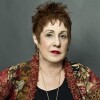The Barnard Center for Research on Women is still at it– disguising their pro-Jihad style of anti-Semitism/anti-Zionism as an academically trendy version of feminism.
Tonight on December 4th, six of Columbia’s professors are presenting a panel titled: “On Feminism and Palestine.”
Faculty speakers include Columbia’s very own Lila Abu-Lughod, Jafari Sinclaire Allen, Jack Halberstam, Premilla Nadasen, Neferti Tadiar. Sarah Haley will moderate. Five of these panelists are professors of Sexuality and Gender and/or Women, Gender, and Sexuality Studies, as is the moderator. They are experts in “Islamophobia,” queer studies, African-American and Afro-Caribbean studies, transgenderism, working class women of color, women of color in the Philippines, post-colonialism, Black feminist history, prison abolition, “colonial” feminism, etc.
Their work in these fields may be excellent. However, none of it seems to be about Palestine. No one seems to have grown up there. Only one panelist claims to have ancestors from the region and has studied Muslim and Bedouin communities.
There is much to say about Feminism and Palestine, especially at this moment. For example, let’s begin with Hamas’s use of civilian women, children, and the elderly as human shields in Gaza– for which only Israel is blamed; Hamas’s occupation of mosques, hospitals, and schools in Gaza; Hamas’s persecution of gays, dissidents, and women in both Gaza and in Yehuda and Shomron– aka the West Bank; Hamas’s Gaza-based and Iranian-funded and sexually violent pogrom against Israeli girls and women on October 7.
However, there are other burning issues for feminists to address about Palestine, including forced child marriage, forced veiling, polygamy, normalized woman-battering and rape, as well as honor killing. I wonder whether these are the issues that will be addressed. Somehow, I doubt it.
That’s because I am familiar with Lila Abu-Lughod’s work. She believes that indigenous honor-related violence is best understood as a consequence of Western colonialism — perhaps even of “Islamophobia.”
On October 25, 2010, at the American University of Beirut, Abu-Lughod admonished (Western) feminists who “sensationalize” honor killings. She “warned that an obsessive focus on so-called honor crime(s) may allow “scholars and activists to ignore important contexts for violence against women: social tensions; political conflicts; forms of racial, class, and ethnic discrimination; religious movements; government policing and surveillance; and military intervention.”
What kind of feminism does Abu-Lughod represent? She is a post-colonial, postmodern, multicultural relativist, a professor who does not believe in universal standards of human rights. However, her work primarily serves the cause of one nationalism– Palestinian — and one tradition only — Islam/Islamism.
Earlier in the 21st century, Abu-Lughod stated that wearing the Islamic veil signifies “respectability” for Muslim women. Moreover, it can be “read as a sign of educated, urban sophistication, a sort of modernity.” Abu-Lughod believes that there are many reasons that a woman might veil — and, if she’s talking about hijab (a headscarf), I can agree with her.
However, wearing a face- and body-covering that obscures identity, peripheral vision, and all normal social interaction — that functions, in effect, like a sensory deprivation isolation chamber — is not an empowered “feminist” choice or even a feminist way of rejecting sexual objectification.
Professor Abu-Lughod does not wear hijab, niqab, or a burqa. She and her professor parents were all American academics. Her Palestinian-American father, Ibrahim, taught at Northwestern University for 35 years; her Jewish-American mother, Janet Lippman Abu-Lughod, did so for twenty years.
To be fair, Abu-Lughod has also published some interesting work about Muslim women in the Middle East, and about Bedouin women in particular, including Writing Women’s Worlds: Bedouin Stories. However, Abu-Lughod, like her Columbia University colleague Gayatri Spivak, views a Western-style fight for women’s rights in the Muslim world as “colonial feminism.”
I am among a handful of both Muslim, ex-Muslim, and non-Muslim feminists who challenge this approach. We do not share her anti-Western point of view. We have not been Palestinianized.
The Barnard panelists may study gender for complex reasons, but they use their work to condemn the Judeo-Christian West again and again. Sadly, they are all speaking the same politically correct “feminist” language from which a universal concept of human rights for women has been utterly banished.








